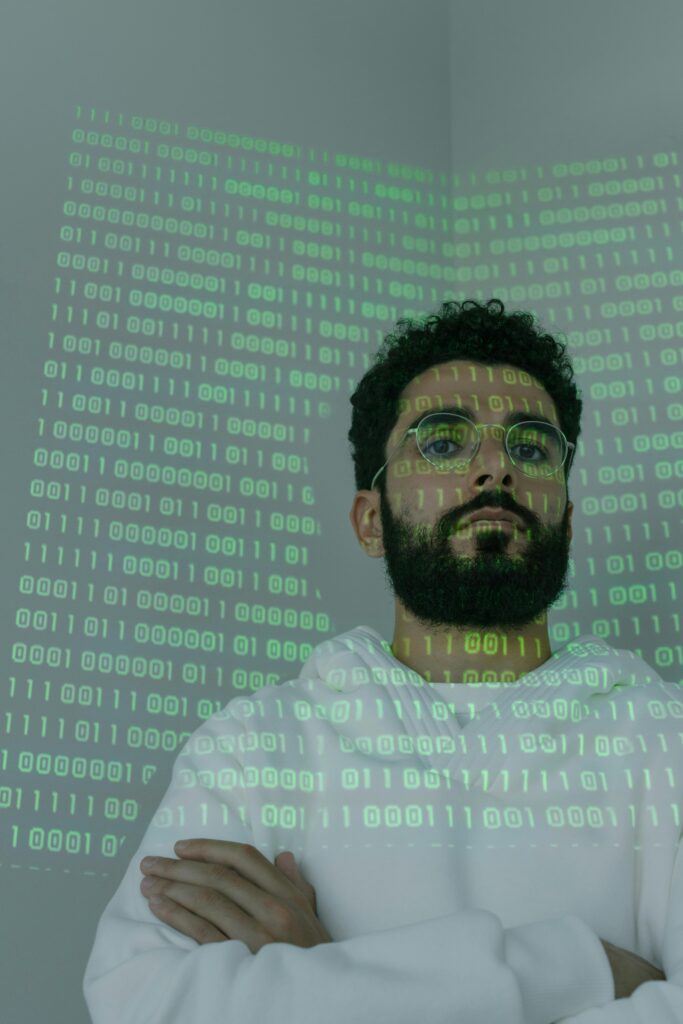Artificial Intelligence (AI) is not just a futuristic concept anymore—it’s here, and it’s reshaping the way we work. From automating repetitive tasks to creating entirely new industries, AI’s rapid integration into the workforce has sparked discussions about its potential to disrupt, create, and redefine employment as we know it.
In this blog post, we’ll dive into how AI is impacting jobs across sectors, explore strategies for adapting to this new reality, and answer the most pressing questions about AI and the future of work.

AI’s Two-Sided Impact on Employment
AI’s influence on the job market is complex, with both risks and opportunities:
- Job Displacement: Tasks that are repetitive and routine are the most susceptible to automation. This is particularly true for industries like manufacturing, administrative support, and retail, where AI tools can efficiently perform work that once required human labor.
- Job Creation: AI isn’t just taking jobs; it’s also creating them. The World Economic Forum estimates that AI could generate a net increase of 78 million jobs globally by 2030. These roles are often focused on areas where human skills complement AI, such as strategy, creativity, and emotional intelligence.
How AI is Changing Different Industries
- Information Technology (IT): IT professionals are seeing a significant transformation in their roles, with AI automating routine coding and data management tasks while opening opportunities for advanced roles in AI system design and implementation.
- Financial Services: From algorithmic trading to fraud detection, AI is revolutionizing the finance industry. While some jobs are at risk, there is increasing demand for professionals who can manage and enhance AI systems.
- Creative Industries: Generative AI is becoming a key player in fields like design, writing, and animation. In some cases, it’s replacing human roles, such as video game illustrators, but it’s also empowering creators to push boundaries with tools that enhance their creativity.
Adapting to the AI Revolution
To thrive in an AI-driven job market, individuals, organizations, and policymakers need to act proactively:
- Upskilling and Reskilling
Embrace lifelong learning. Focus on developing skills that AI cannot easily replicate, such as critical thinking, leadership, and emotional intelligence. - Policy Innovation
Governments must prepare for economic shifts by considering measures like universal basic income, updated education systems, and social safety nets to support those in transition. - Ethical AI Practices
Organizations must implement AI responsibly to balance efficiency with fairness. Ethical guidelines for AI use can help reduce job displacement and foster inclusive growth.

Common Questions About AI and Jobs
1. Will AI cause mass unemployment?
AI is likely to change jobs rather than eliminate them entirely. New roles will emerge alongside AI, focusing on areas that require human intuition and adaptability.
2. What types of jobs are most at risk?
Jobs involving repetitive, predictable tasks—such as data entry, assembly line work, and basic administrative roles—are most vulnerable to automation.
3. How can workers prepare for AI’s impact?
Workers can stay relevant by learning skills that AI complements rather than replaces. Areas like creative problem-solving, innovation, and customer relationship management are critical.
4. What role should policymakers play?
Policymakers need to create forward-thinking strategies that support workforce transitions, from education reform to implementing safety nets for displaced workers.
Final Thoughts
The AI revolution is here to stay. It’s transforming how we work and redefining the skills needed to succeed. While challenges like job displacement are real, so are the opportunities for innovation and growth. By embracing change, investing in upskilling, and advocating for responsible AI use, we can ensure that AI benefits society as a whole.
Sources The New York Times


